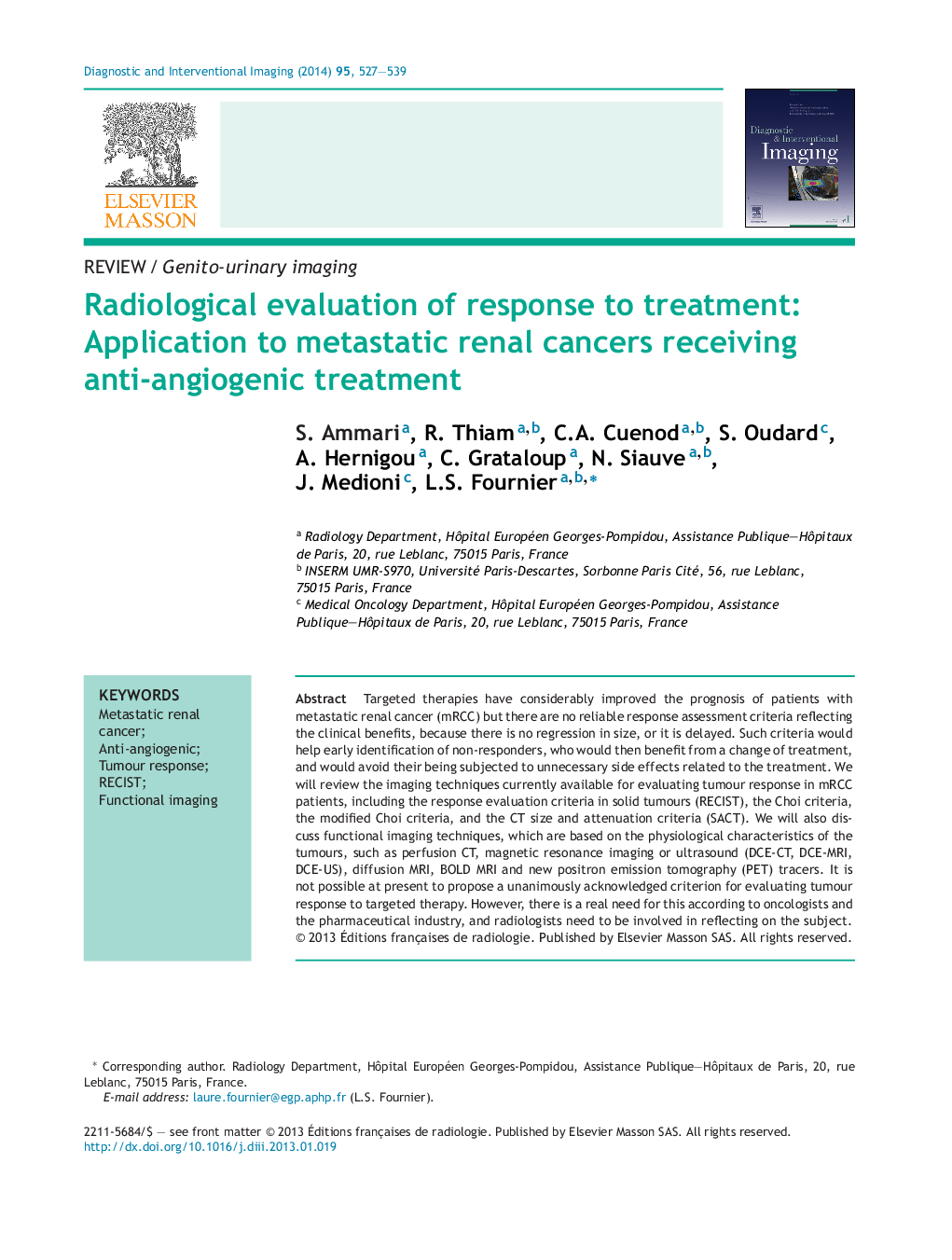| Article ID | Journal | Published Year | Pages | File Type |
|---|---|---|---|---|
| 2732918 | Diagnostic and Interventional Imaging | 2014 | 13 Pages |
Targeted therapies have considerably improved the prognosis of patients with metastatic renal cancer (mRCC) but there are no reliable response assessment criteria reflecting the clinical benefits, because there is no regression in size, or it is delayed. Such criteria would help early identification of non-responders, who would then benefit from a change of treatment, and would avoid their being subjected to unnecessary side effects related to the treatment. We will review the imaging techniques currently available for evaluating tumour response in mRCC patients, including the response evaluation criteria in solid tumours (RECIST), the Choi criteria, the modified Choi criteria, and the CT size and attenuation criteria (SACT). We will also discuss functional imaging techniques, which are based on the physiological characteristics of the tumours, such as perfusion CT, magnetic resonance imaging or ultrasound (DCE-CT, DCE-MRI, DCE-US), diffusion MRI, BOLD MRI and new positron emission tomography (PET) tracers. It is not possible at present to propose a unanimously acknowledged criterion for evaluating tumour response to targeted therapy. However, there is a real need for this according to oncologists and the pharmaceutical industry, and radiologists need to be involved in reflecting on the subject.
